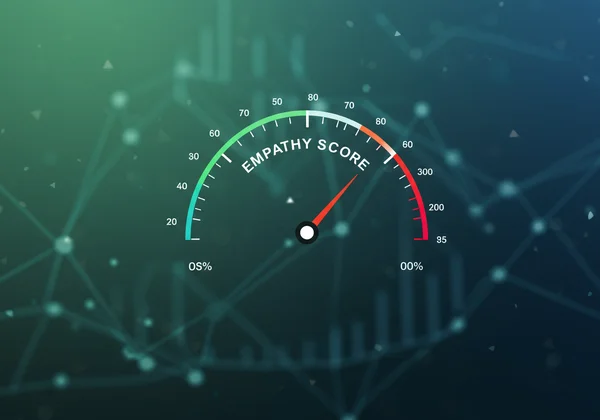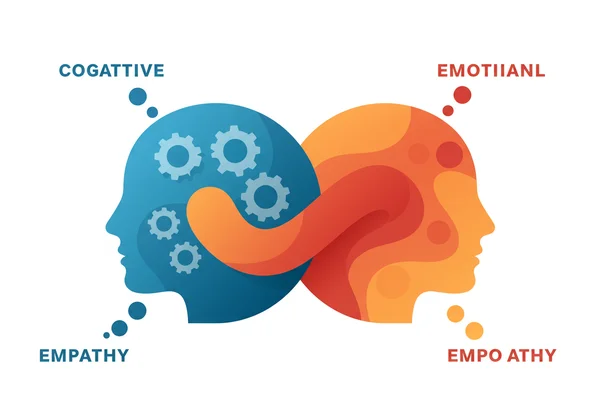Decoding Your Empathy Score: Understanding Test Results
July 21, 2025 | By Penelope Dean
You've bravely taken our empathy test, and now a number sits before you: your empathy score. But what profound insights does this figure truly hold about you? Is it a definitive label, or rather, the powerful starting point for a new chapter of self-discovery?
This guide is here to demystify your empathy score and transform it from a simple number into a powerful tool for understanding yourself. An empathy test isn't about getting a "perfect" score; it's about gaining insights that can improve your relationships, boost your career, and enrich your life. Ready to decode your results? Let’s begin your journey and discover your results now.
What Your Empathy Score Represents
First, let's be clear: your empathy score is not a judgment of your character. It’s a snapshot of your current ability to understand and share the feelings of others. Think of it like a fitness assessment. It shows you where you're strong and where you have opportunities to grow. The score you receive from an online empathy test is a reflection of your emotional intelligence in specific situations.

It serves as a starting point, providing a baseline from which you can build greater self-awareness and stronger interpersonal skills. It helps answer the question, "how empathetic am I?" with nuanced data rather than guesswork.
The Core of Empathy: Beyond Just Feelings
To interpret your score, it’s helpful to understand that empathy is multidimensional. As a psychology enthusiast, I find it fascinating that it’s not just one thing. It's primarily broken down into two key components:
- Cognitive Empathy: This is the "thinking" part of empathy. It’s your ability to understand someone else's perspective and comprehend their feelings on an intellectual level. You can see why they feel the way they do, even if you don't feel it yourself.
- Emotional Empathy: This is the "feeling" part. It’s your ability to share the emotional experience of another person. When a friend is sad, you feel a pang of sadness, too. This is a core element measured in many assessments, including a
cognitive empathy test.
Your total score reflects a blend of these types, showing your overall capacity for connection.

How Empathy is Measured in a Test Setting
A well-designed empathy quiz like our online assessment uses a series of situational questions based on established psychological principles. You're presented with scenarios and asked to select the response that most closely matches your own reaction. There are no right or wrong answers, only honest ones.
The scoring system aggregates your responses to create a profile of your empathic tendencies. This method provides a more objective measure than simply asking yourself, "Am I an empath?" It creates a reliable empathy scale online that reflects your patterns of thought and feeling in social contexts. The goal is to provide a clear, confidential reflection of your inner world.
Interpreting Your Empathy Test Results
Receiving your results is the most exciting part. Regardless of the number, remember that this information is for you. It's a private tool to foster personal growth. Let’s explore what different score ranges might suggest.
Every score is a unique data point on your personal journey. Whether you want to refine existing strengths or build new ones, the key is to approach your results with curiosity, not criticism. The first step to understanding is to take our free test.
What a High Empathy Score Implies
A high score suggests you are deeply attuned to the emotional currents around you. You likely find it easy to connect with others, understand their unspoken needs, and build strong, meaningful relationships. People may describe you as compassionate, intuitive, and a great listener. You are probably the friend everyone turns to for support.
However, this sensitivity can sometimes lead to challenges like emotional burnout or hyperempathy, where you absorb too much of others' stress. Learning to set healthy emotional boundaries is a key growth area for individuals with high empathy. It's about learning to care without carrying the full weight of the world on your shoulders.
Understanding a Moderate Empathy Score
A moderate score is very common and often represents a healthy balance. It indicates you have a solid foundation of empathy but can also maintain a degree of emotional distance when needed. You can connect with people and offer support, but you’re less likely to become completely overwhelmed by their emotions.
This balance is a strength in many professional and personal settings. For individuals in this range, growth often involves fine-tuning your skills—perhaps learning to be more present in certain conversations or becoming better at recognizing subtle emotional cues. It's about moving from good to great.
Navigating a Lower Empathy Score
Receiving a lower score can feel disheartening, but it's crucial to reframe it. A low empathy score does not mean you are a bad or uncaring person. Often, it simply means you tend to approach situations with logic over emotion, or that you've developed protective mechanisms based on past experiences. Some of the most brilliant and effective people have low empathy scores but excel in other areas.
Think of this as an opportunity to develop a new skill. Your path might involve consciously practicing perspective-taking or learning to identify and name emotions in yourself and others. Answering "how to fix a lack of empathy?" begins with understanding that it's a skill you can build, just like any other.

Unlocking Deeper Insights with Your AI-Enhanced Report
While a standard score provides a valuable overview, the journey doesn't have to end there. Our platform offers a unique AI-Enhanced Report that moves beyond the number to give you a truly personalized roadmap for growth. This is where you can dive deep into your empathy quotient test results.
What truly sets this experience apart is our unique AI-Enhanced Report, designed to give you a personalized roadmap for growth. It leverages AI to analyze the nuances of your answers, offering insights you won't find in a standard summary. It’s designed for anyone serious about self-improvement, from students to professionals.
Personalized Analysis: Going Beyond the Basics
The AI-Enhanced Report breaks down your score into specific components. It can highlight situations where your cognitive empathy shines and others where your emotional empathy could be stronger. It offers detailed analysis of your strengths, potential challenges, and how your unique empathy profile impacts your daily life at work, at home, and with friends.
This level of detail turns a general score into a specific, actionable profile. It helps you understand the "why" behind your score, providing a foundation for meaningful change. Get your personal plan to see the difference.
Actionable Strategies for Empathy Development
Understanding your score is just the beginning; true growth comes from applying what you've learned. The AI-Enhanced Report provides concrete, actionable strategies tailored to your results. Instead of generic advice, you receive exercises and techniques designed to address your specific areas for growth.
Whether your goal is to become a more effective leader, a more supportive partner, or simply a more self-aware individual, this personalized plan gives you the tools you need. It transforms your test results into a dynamic guide for building your empathy muscle, one step at a time.

Your Empathy Journey: Insights for Growth
Your empathy score isn't a finish line, but a powerful first step on your ongoing journey of emotional and social growth. It’s not about judging where you are, but about embracing the opportunity to grow. Every score holds a valuable lesson and a path forward. Use this insight not as a final verdict, but as a compass pointing you toward a more connected and fulfilling life.
Ready to discover where you stand? Your journey to greater self-awareness and improved relationships starts with a single step. Start your empathy test today and unlock the insights waiting for you.
Frequently Asked Questions About Your Empathy Score
How do I know if I'm truly empathetic?
While gut feelings are important, self-perception can be biased. A structured assessment like an empathy test provides a more objective measure. It compares your responses against established patterns, giving you a clearer picture of your empathic tendencies than introspection alone can offer. It's the best way to move from wondering to knowing.
What does it mean to have low empathy?
Having low empathy does not mean you are a bad person. It often signifies a preference for logic and analysis over emotional responses. It can also be a protective shield built from past experiences. Recognizing this is the first step toward consciously developing skills in perspective-taking and emotional recognition, if you choose to do so.
Is there a test to find out if I am an empath?
Yes, absolutely. While "empath" is a popular term, a scientifically-grounded test can measure your level of empathy with remarkable accuracy. An assessment like this online empathy test is specifically designed to evaluate your emotional and cognitive responses to determine where you fall on the empathy spectrum.
Can my empathy score change over time?
Definitely. Empathy is not a fixed trait; it's a skill that can be developed and strengthened with conscious effort. Just like exercising a muscle, practicing active listening, seeking diverse perspectives, and using the actionable strategies from a detailed report can lead to significant growth in your empathy score over time.